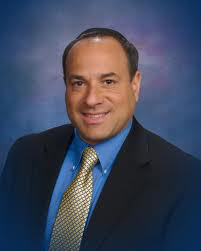The US Food and Drug Administration has been told that it should refrain from a crackdown across the vaping category but act decisively against its ‘bad actors’.
Jeff Stier, senior fellow at the Consumer Choice Center, offered this advice as the FDA prepares its new action plan on electronic cigarettes.
Stier put forward some ‘simple steps’ for the FDA to follow if it wanted to adhere to common ground.
“We should all be able to agree that e-cigarettes are not entirely safe and should not be used by kids,” said Stier.
“At the same time, as Public Health England has been saying for more than three years, e-cigarettes are around 95 percent less harmful than combustible cigarettes and can help smokers quit. To maximize protection to Americans of all ages, the FDA must finally formulate sensible, science-based policies to achieve two key goals:
- “Prevent youth from initiating the use of any nicotine-containing product, including e-cigarettes.
- “Foster switching by adult smokers who have been unable to quit by other means.”
Stier said the FDA was threatening that, because of ‘news reports,’ public opinion and data about youth use that the agency hadn’t released, it might soon remove many e-cigarettes from the market, including most flavors, as well as the pods they come in, until a manufacturer applies for and receives approval for each product.
The agency was warning also that it might ban sales everywhere except in vape shops.
“But it’s not too late,” said Stier. “In its new plan, the FDA should implement the legitimate common ground by taking the following three steps:
1: “Focus on the bad-actors. The FDA should act swiftly and forcefully, as it has the authority to do, against any retailer caught selling an e-cigarette to a minor.
2: “The FDA must work constructively with the industry it regulates.
3: “Make good on the promise to change misconceptions about nicotine, which, while addictive, is not the major cause of tobacco-related disease.”
Stier then moved on to what he believed the FDA should not do:
1: “Remove e-cigarettes from all stores except vape shops.
2: “Allow either side to erode common ground. Just as the FDA shouldn’t be lenient with those who sell or give e-cigarettes to kids, it shouldn’t allow false assertions about the risks of e-cigarettes to stand unchallenged.
3: “Fall prey to the notion that the FDA has in its power the ability to prevent every last youth from ever trying an e-cigarette.”
Stier said that when it gave the FDA authority to regulate recreational lower-risk nicotine products, Congress believed the FDA could be sophisticated enough to prevent youth use while helping adults quit smoking.
“Sadly, to date, the FDA has accomplished little on either front,” he said. “These failures don’t justify a misplaced ‘crackdown’ on e-cigarettes. They require an intensive focus on stopping the bad actors.
“If the FDA doesn’t get it right – this month – President Trump should ask, in an exit interview, why FDA leadership couldn’t achieve a central promise of the administration: improving our lives not with more regulation, but with less of it, wisely implemented.”










